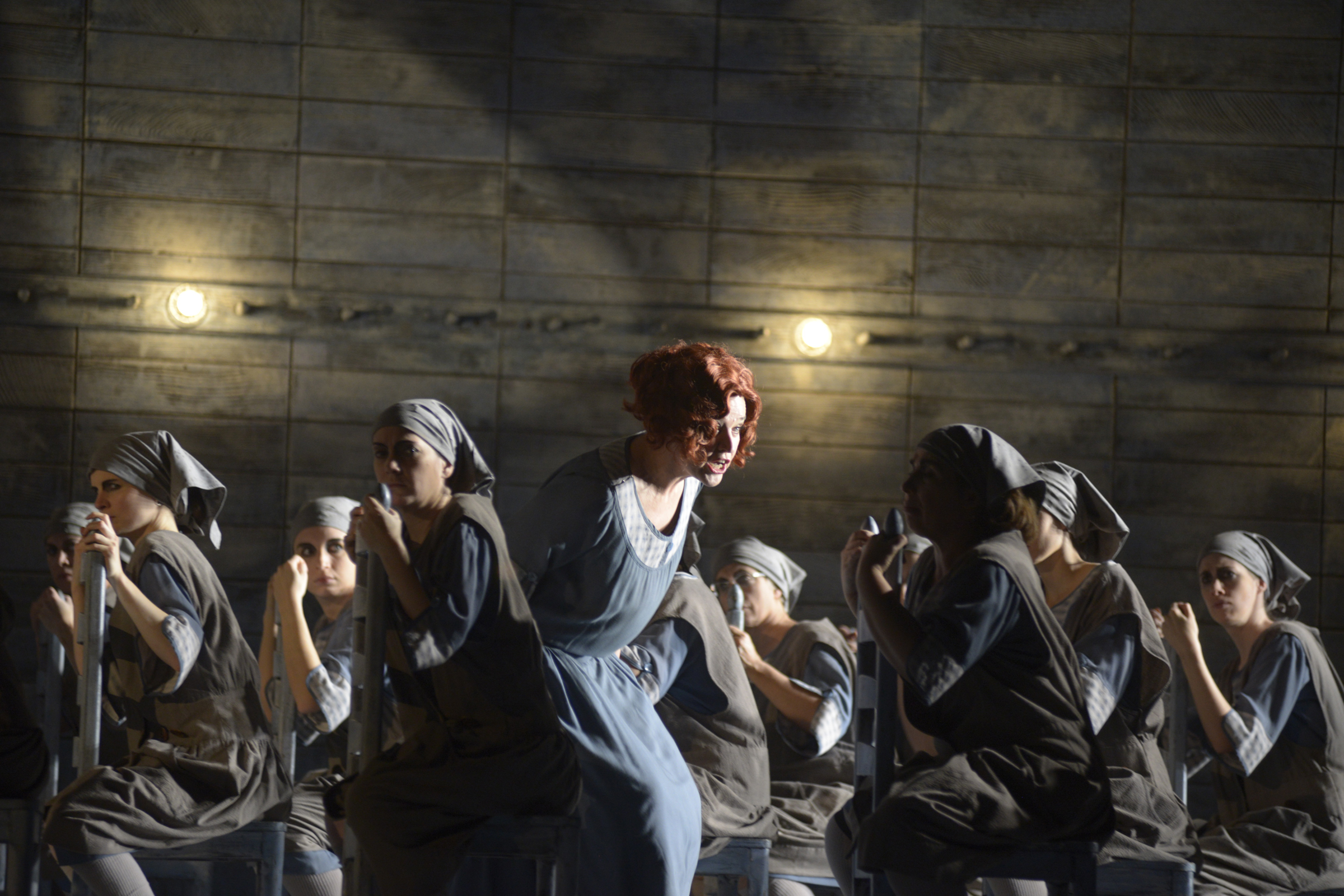Written in 1841, The Flying Dutchman tells the story of a man condemned to roam the sea for all eternity, until he finds a woman who remains faithful to him until her death. Paired with a celebrated musical score, this dark love story requires virtuosic performances from the entire cast. Opéra de Montréal rose to this challenge with a group of extraordinarily talented soloists whose pronounced level of musical ability and acting prowess are rarely seen in the world of opera.
As the curtains rise at the beginning of Act I, the audience is confronted with a world that appears tipped on its side. The large set rests at an angle inclined from the stage, creating the illusion of a boat rolling on the sea. This unconventional staging works well for the opera’s visual aspect; the chorus members stumble and fall over each other on the unbalanced stage, creating a believable portrait of the sea torrents. The confines of the set, however, hamper the performance’s acoustics. Just as the pit orchestra is muffled when located below stage, the soloist’s voices are smothered by the box wherein they perform. As a consequence, the audience pines for the glowing and sonorous acoustics characteristic of the hall, and the soloists struggle with projection.
Soprano Maida Hundeling, however, remains one of the few cast members unaffected by the constraints of the set. While the Dutchman (Thomas Gazheli) struggles to project his voice above the orchestra, Hundeling, as the phantom sailor’s love interest Senta, has a voice that resonates across the hall in all registers. From her dark and rich low notes, to her sparkling highs, she delivers a masterful and convincing performance, easily the highlight of the evening.
Throughout the opera, Gazheli walks with the weight of a man who has endured a thousand years of suffering, and his voice quavers under the heavy burden of the Dutchman’s sentence. While he proves to be a sympathetic character, Gazheli’s performance feels tired at times, and slows the pace of the piece. However, in comparison to Erik (Endrik Wottrich), a hot-blooded huntsman in love with Senta, Gazheli’s minimalist acting draws the audience’s attention. Gazheli captures the Dutchman’s lack of hope for salvation and his fatigue after years of torment, making for a convincing and powerful performance.
In working around their stage set as well as the constraints of time, Opéra de Montréal is forced to make certain adaptations to the ending of the original opera. Although this modern interpretation may seems abrupt to the unsuspecting audience member, the performance was compelling and artistically refined—nothing short of Opéra de Montréal’s global reputation.
The Flying Dutchman can be seen at Place des Arts, Salle Wilfrid-Pelletier, Nov. 13, 15, and 17 at 7:30 p.m. Tickets from $50.









